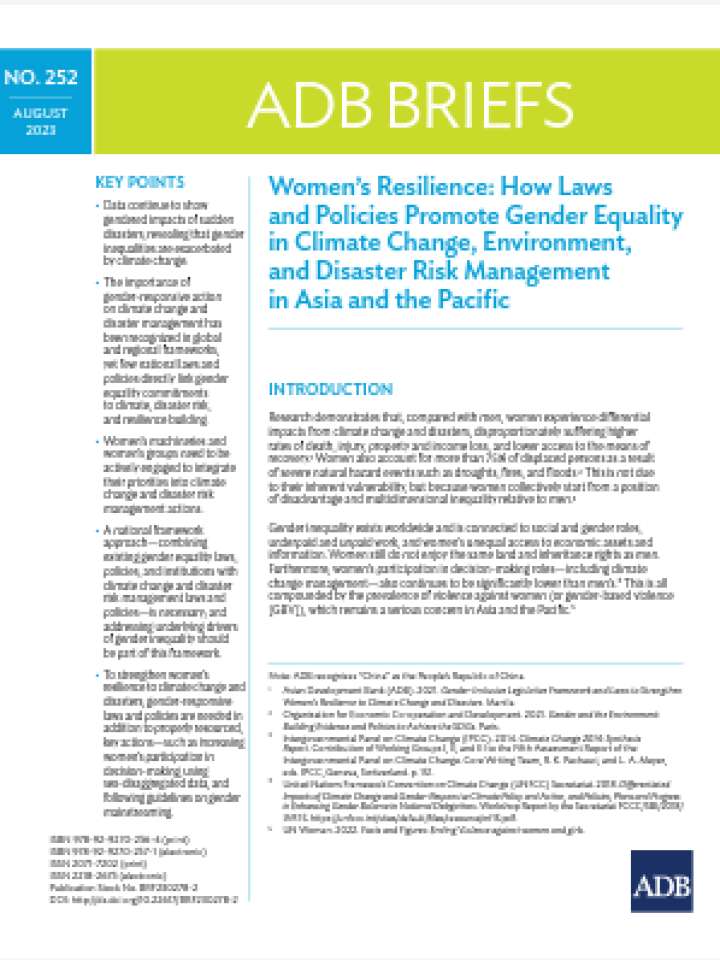Women’s resilience: How laws and policies promote gender equality in climate change, environment, and disaster risk management in Asia and the Pacific
This brief outlines how gender-responsive laws and policies can help women in Asia and the Pacific become more resilient to climate change and disasters—if they are matched by steps to tackle the underlying causes of vulnerability. Analyzing why women are disproportionately impacted by the effects of climate change and disasters, it explains how inequalities in the region are perpetuated by gender-neutral laws and policies.
According to the report, key actions are also needed to implement laws and policies to strengthen women’s resilience to climate change and disasters. These include, but are not limited to the following:
- Prioritizing the collection and analysis of sex-disaggregated data, including other factors (such as age and location). Given increased regional attention on links between gender, climate change, and disasters—with an array of new or revised laws and policies—the speed of collecting sex- and age-disaggregated data must accelerate.
- Acknowledging the links between VAW, GBV, decent work, and access to assets as central to building women’s resilience. Climate and disaster risks are likely to increase in Asia and the Pacific, so links between key socioeconomic areas and climate-related risks must be recognized in laws on climate change and disaster risk management, including legislation and policies on ending VAW, promoting decent work, and enabling universal rights to economic assets.
- Increasing women’s participation in the management of environmental, climate change, and disaster risks. Women have very little influence over policy formulation, due to the limited number of women in decision-making positions. However, governments can be guided by the international frameworks promoting more gender-inclusive processes and greater representation of women in climate action. It is necessary to elevate women’s participation in decision-making from local to national and international levels.
- Developing gender mainstreaming guidelines on climate change and disaster risk management, to support the implementation of laws and policies. As legislative reform and new laws on climate change and disasters include gender equality as a fundamental principle, there is a rising need to support the execution of gender-responsive and inclusive action on climate change and disaster risk management.
Explore further
